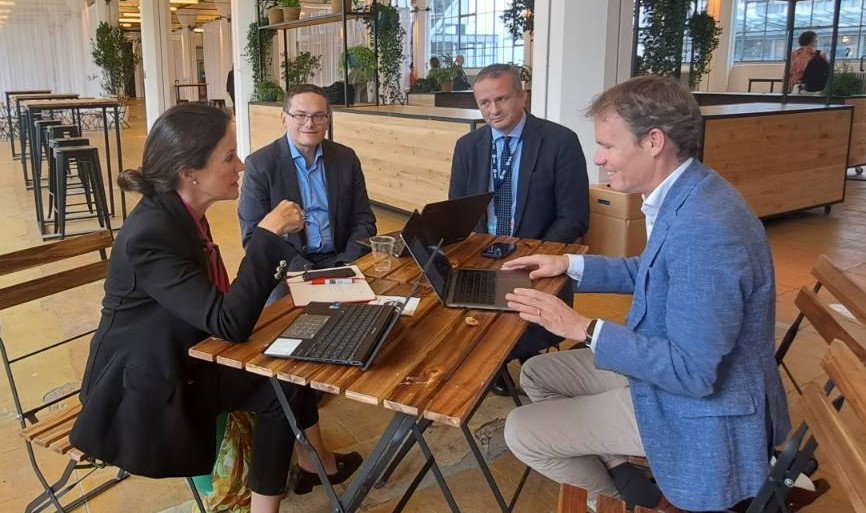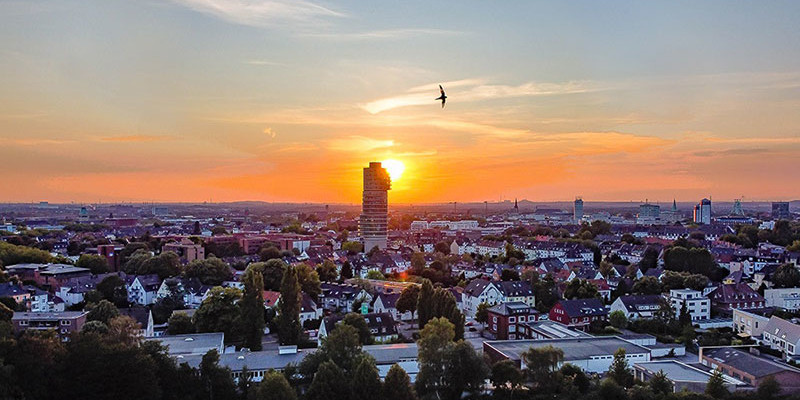The UNIC website uses cookies to improve your experience. Read our full Cookie Policy here.
The Reimagining of Urban Spaces: A Journey Through Post-Industrial Cityscapes was published by Springer on 20 December 2024. This book explores the future of cities and regions in a post-industrial world. The book was edited by UNIC colleagues Prof. Stjepan Lakušić (University of Zagreb), Prof. Jurica Pavičić (University of Zagreb), Dr Nebojša Stojčić (University of Zagreb) and Prof. Peter W. A. Scholten (Erasmus University Rotterdam), and Dr Jean van Sinderen-Law (University College Cork).
The origins of the book lie in the UNIC alliance which is also described as the book's 'cradle'. The book in turn features insights and findings from collaboration within the UNIC alliance. To understand how this project came together, UNIC spoke to Vice-Rector and conceptual lead of the book, Prof. Jurica Pavičić. This interview has been edited for clarity.
Q: Could you tell us more about the origins of this book and the issues it addresses? What was the starting point for this volume, and how did you develop that initial idea?
A: The idea for the book emerged from our collaborative work within the UNIC network, where a group of us — Peter Scholten (Erasmus University Rotterdam), Jean Van Sinderen-Law (University College Cork), Stjepan Lakušić (University of Zagreb), Nebojša Stojčić (University of Dubrovnik), and myself (Jurica Pavičić, University of Zagreb) — identified a shared concern: post-industrial cities across Europe are undergoing profound and complex transformations.
As co-editors, we recognised the urgent need to explore the wide-ranging challenges these cities face — from deindustrialisation and demographic change to social fragmentation, digital transformation, and environmental pressures. Our ambition was to produce a volume that not only critically diagnoses these issues, but also offers meaningful, policy-relevant insights.
The development of the book has been a truly interdisciplinary and international effort, shaped by contributions from scholars across multiple institutions and disciplines. Our regular exchanges — including the upcoming meeting at the Rotterdam conference — have been key in shaping a coherent structure, grounded in both theoretical reflection and real-world relevance.
 The authors at one of the key in-person meetings that shaped the development of the book — held during the UNIC conference in Rotterdam, 25-26 September 2023.
The authors at one of the key in-person meetings that shaped the development of the book — held during the UNIC conference in Rotterdam, 25-26 September 2023.
Q: You describe the role of UNIC as the book’s “cradle”. Could you tell us more about the role that UNIC, and UNIC collaboration played? What were some strengths in how UNIC works that make this volume “unique”, so to speak?
A: UNIC has provided the vital ecosystem in which this volume was conceived and brought to life. As an alliance of universities rooted in post-industrial cities, it offers a unique collaborative model that brings together local insight and transnational perspective. UNIC’s emphasis on engaged research, societal impact, and city-university collaboration provided the intellectual foundation and institutional support for this project.
What makes the UNIC framework so powerful is its dual identity — it is both academic and civic. That allowed us to work not just as researchers, but as engaged actors within our cities. The themes of this volume — resilience, revitalisation, governance, sustainability — were shaped through dialogues across disciplines, borders, and communities. This approach gave the book a depth and authenticity that would not have been possible without UNIC’s collaborative platform.
Q: What kind of impact would you like to see with this work? What could the research in this volume lead to, in terms of guidance for policy makers and practitioners?
A: I hope this book sparks real, tangible impact. Not just academic debate, but practical change — encouraging policymakers and urban leaders to view post-industrial cities not as spaces of decline, but as engines of opportunity.
The volume aims to inspire bold, thoughtful action rooted in inclusion, sustainability and community engagement. By sharing examples from cities like Bilbao, Rotterdam, Zagreb, Liege and Istanbul, we highlight what’s possible when transformation is done with purpose.
At its core, this work is about people — restoring identity, fostering resilience and ensuring that no one is left behind. If it helps guide smarter policies, better investment and stronger collaboration, then it will have truly served its purpose.
Q: How do you plan to move forward with this work? What comes next from the connections, insights and ideas established in this volume?
We hope that this book is just the beginning. The insights and connections it brought can open many possibilities: developing new, thematically focused books, exploring joint research or policy labs among UNIC partners, or diving deeper into how university alliances shape urban transformation. There is also potential to translate these findings into educational formats — from joint degrees to short-term programmes — or to engage cities directly through dialogues and practical experiments. The pathways forward are many, and this book offers a strong foundation for all of them.

Q: Any final or additional thoughts?
A: If one message runs consistently through every chapter, it is that post-industrial cities are not defined by decline, but by reinvention. Their complexity is their strength — they carry the legacy of past industries, but also the capacity to lead Europe’s sustainable, digital and inclusive transitions.
This book is a collective invitation to reimagine what these cities can become — not by importing solutions, but by drawing on their unique heritage, communities and potential. I’m grateful to UNIC for making that imagination possible, and we look forward to the next chapter.
Access or purchase the book here: The Reimagining of Urban Spaces: A Journey Through Post-Industrial Cityscapes | SpringerLink
UNIC's Expert Voices: Dr Kees Krul at Malmö University's PhD Summer Sc...
UNIC's Expert Voices Fund enhances the alliance's dissemination activities by providing our ac...
01 Sep 2025
Read more »Open Call: The UNIC HEI Awards for Inclusive Higher Education
Identifying and awarding courses that represent the best teaching and research practices in th...
01 Sep 2025
Read more »UNIC CityLab - Bilbao as a learning environment for Erasmus University...
From 15 to 19 June 2025, 27 students and researchers from Erasmus University Rotterdam joined ...
15 Jun 2025
Read more »